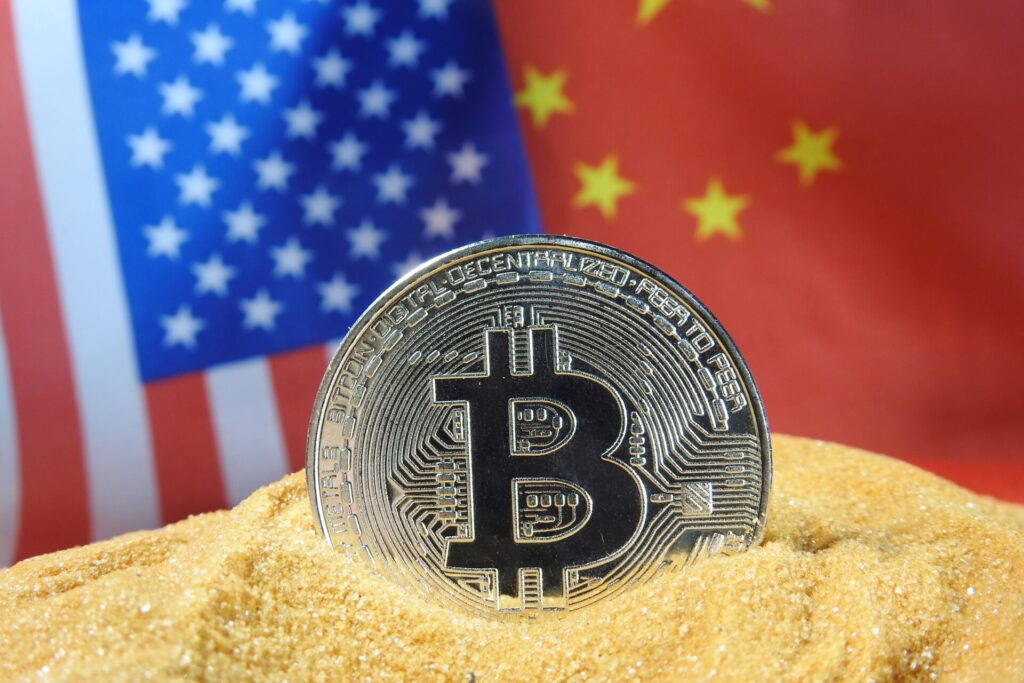
In an increasingly globalized world of finance, phenomena such as cryptocurrencies seem to be breaking the boundaries of traditional markets. Arthur Hayes’ article “Panda Power: China and the Future of Bitcoin” delves into the fascinating connections between the world’s largest powers – China and the United States – and the dynamically evolving cryptocurrency market. Diving into the analysis of the impact of Chinese economic policy and American monetary strategy, the author discovers how these two superpowers shape the face of the cryptocurrency market, with particular emphasis on Bitcoin.
Arthur Hayes, co-founder of BitMEX and a known cryptocurrency expert, in his article “Panda Power” highlights the significant impact of China on the Bitcoin market. Hayes points out that many major Bitcoin mining enterprises have their roots in China. He analyzes China’s attempts to transition from a production-based economy to a demand-based economy, which has implications for credit policy. These changes could have a positive impact on hard monetary assets like Bitcoin.
Hayes highlights contrasting viewpoints on recent meetings between the U.S. and China, emphasizing both short-term successes and unresolved structural issues. He predicts a short period of cooperation between the two countries, motivated by the need to achieve internal political victories.
The article’s author notes that China’s economic model relies on selling goods to wealthy Americans and Europeans, and recent events may signal a change in economic relations between the West and China. The use of TikTok by the Biden administration in the presidential campaign and potential lowering of trade tariffs indicate a new tone in Sino-American relations.
Hayes discusses actions by the U.S. Treasury Secretary, Janet Yellen, aimed at weakening the dollar through the issuance of treasury bonds. He analyzes the impact of this strategy on the broader economic landscape and highlights its significance in the context of stress on the U.S. treasury bond market. The weakening of the dollar creates opportunities for potential cooperation between the U.S. and China.
The article addresses challenges facing the Chinese economy, especially the real estate market crisis and potential consequences for ordinary citizens. Hayes explains the political complexity of managing the real estate market crisis and the delicate balance required to maintain social cohesion. He suggests that China must engage in significant stimulus activities but faces limitations due to Federal Reserve policy.
In his analysis of centralization, Hayes presents a unique perspective, calling himself and even Changpeng ‘CZ’ Zhao, former CEO of Binance, sinners in the eyes of “Lord Satoshi.” According to Hayes, the decentralized nature of cryptocurrencies is consistent with Satoshi’s vision, and any deviation from this direction is seen as an offense.
Hayes questions the disproportion of the punishment imposed on CZ, comparing it to the lack of criminal consequences for larger, traditional financial institutions involved in serious offenses. This analysis, according to Hayes, highlights the arbitrary nature of state-imposed penalties.
Hayes points to the current economic and political climate, especially the interactions between the United States and China, which favor credit expansion in China, potentially leading to increased investments in Bitcoin. In the conclusion of his analysis, he points out optimistic prospects for the Chinese market.
Photo by Ewan Kennedy on Unsplash
